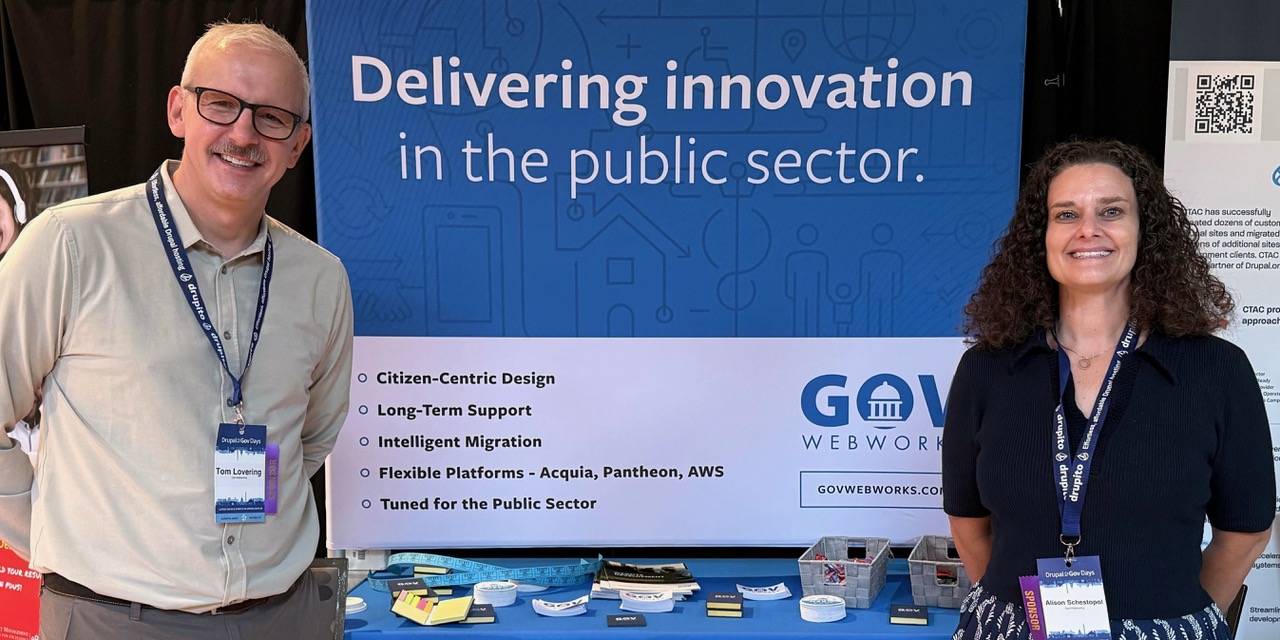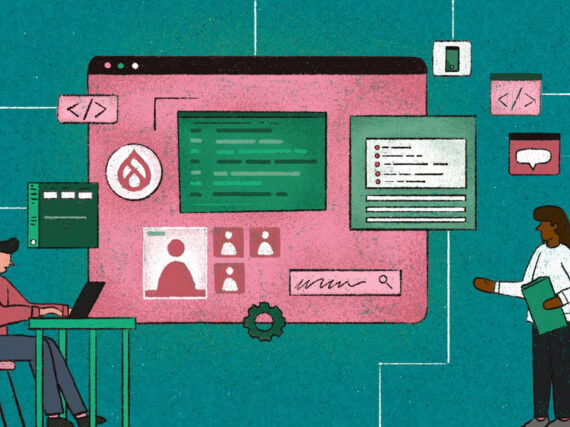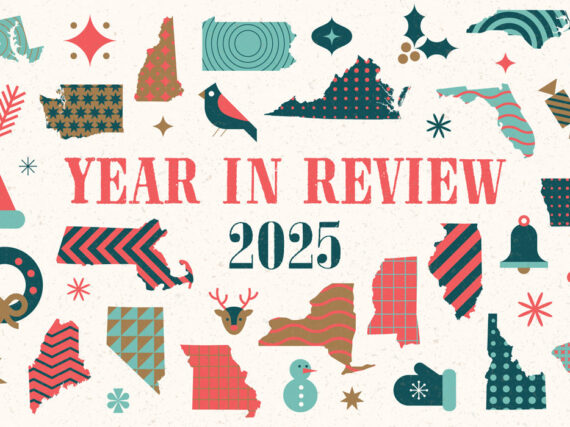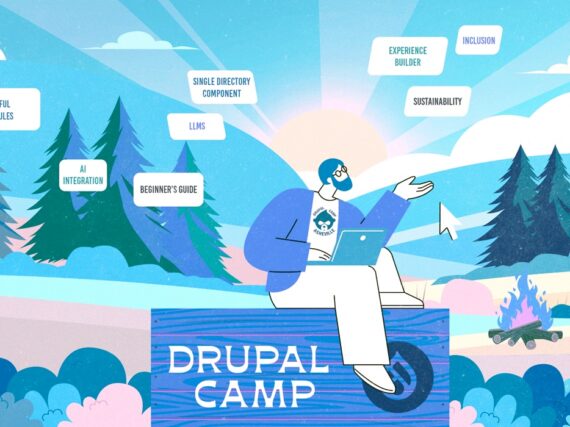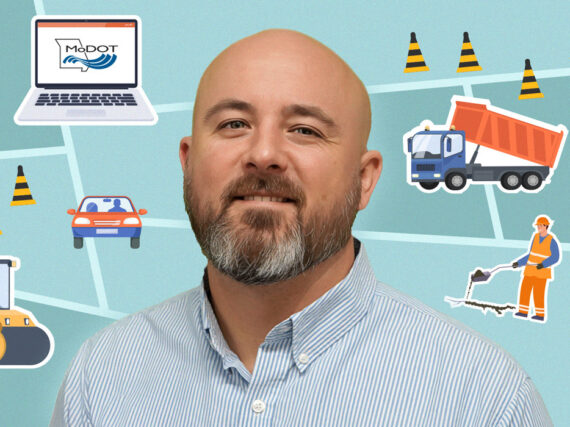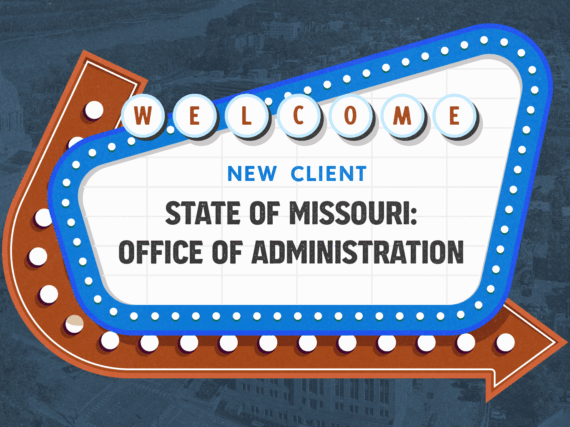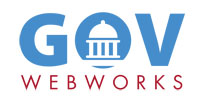Drupal GovCon always leaves me with a wealth of insights and renewed perspectives. No less, at this year’s conference hosted by the University of Maryland. A diverse group of over 400 attendees from across the public and non-profit sectors created a vital forum for discussing the future of digital services. Beyond the scheduled keynotes and sessions, it was the informal exchanges in the hallways and at sponsor booths that truly illuminated the core themes. Conversations focused on how we can leverage Drupal’s robust platform to meet the evolving demands of the government and the public it serves. The three following topics stood out as my primary take-aways.
AI as a practical partner
The integration of artificial intelligence and large language models (LLMs) was a theme that transcended a single track, appearing in talks on content strategy, development workflows, and user engagement. We spoke with several attendees who are exploring practical applications, such as using AI for automated content tagging and metadata generation. They said AI can significantly reduce the manual effort required from content teams, allowing them to focus on high-value creative work.
One session on “AI-Driven Chatbots” sparked a significant dialogue about implementing these tools for citizen services. The discussion highlighted both the immense potential for improving user support and the critical need to address ethical considerations, data privacy, and the responsible use of AI in a public-sector context. The sentiment wasn’t about replacing human roles but rather augmenting our capabilities with intelligent tools to create more efficient and effective digital experiences.
“Expectations are shifting across the board,” said speaker Rob Morris, Principal Drupal Engineer at CTAC. “We have a convergence of expectation and need like never before.”
First, Morris explained, people don’t want to search like they used to, so there’s a drive to deliver plain language summaries. At the same time, he noted that many agencies suffer from the same pain points, such as old, sprawling websites, buried PDFs and limited help desk bandwidth. Finally, he mentioned that the government (via various EO’s and mandates) is pushing for AI to be leveraged responsibility to serve citizens.
Commitment to user experience and accessibility
A renewed and deepened commitment to user-centricity and accessibility was a foundational theme in many technical discussions. I spoke with a UX researcher from a federal agency who stressed the importance of considering screen reader functionality from the initial design phase, not as a technical requirement to be added later. This proactive approach was reiterated in a session on building accessible digital experiences, where speakers demonstrated the impact of semantic HTML and proper ARIA attributes on assistive technology.
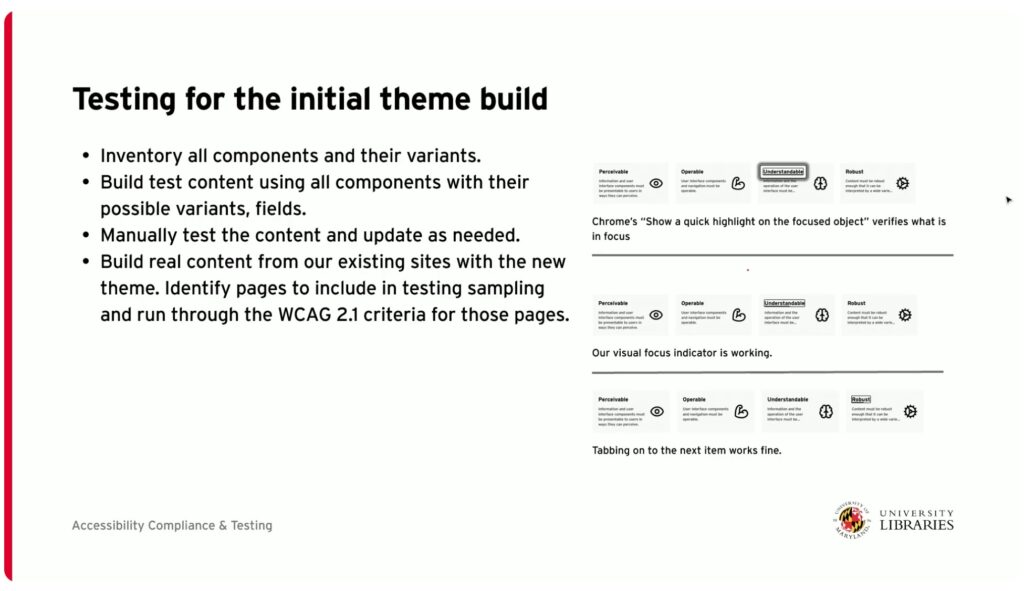
They both emphasized that accessibility isn’t a compliance checkbox; it is a core component of good design.
These conversations underscored that in the public sector, a website’s success is measured by its ability to serve all citizens, regardless of their abilities or the technology they use.
Professional and community growth
Finally, the conference gave significant importance to the theme of professional and team growth, recognizing that the strength of the Drupal ecosystem lies in its people. I found a session on “Cultivating Technical Leadership” particularly insightful. It emphasized that effective leadership is less about hierarchical authority and more about empowering team members, fostering a culture of mentorship, and promoting continuous learning.
“Leadership goes beyond titles,” said speaker Jeff McWherter, COO, GravityWorks. “We’re looking for leadership in our programmers, in our content folks. Everything that we do needs to have some type of leadership to make organizations function and to make them enjoyable to work at.”
Outside of the sessions, I had several conversations with sponsors who not only showcased their products but also shared their own team management philosophies and experiences in mentoring junior developers. This collaborative spirit was evident throughout the event, with attendees openly discussing project challenges and sharing solutions. It was a testament to the community’s collective dedication to skill development and knowledge transfer, ensuring that the next generation of Drupal professionals is well-equipped to tackle complex projects.
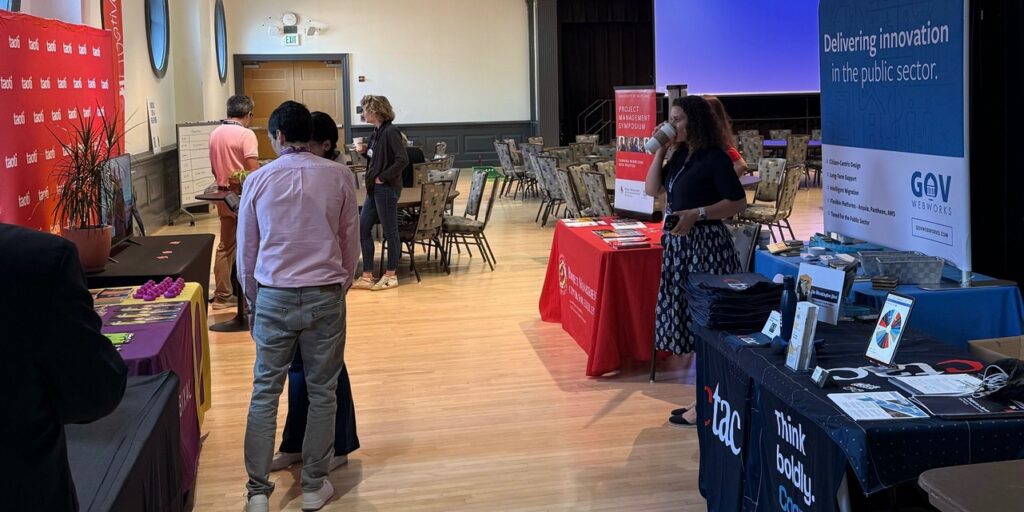
In summary
Upon leaving GovCon, I felt equipped with new technical insights and a reinforced appreciation for the collaborative nature of this community. The conference successfully provided a clear vision for navigating the complexities of modern web development, with a firm focus on security, accessibility, and innovation.
As my team member Alison Schestopol, Director of Project Management at GovWebworks, underlined: “Drupal GovCon proves that gov tech can be smart, secure, and seriously fun.”
Learn more
- Front-End to Full-Stack Drupal: A React developer’s download at Drupal Camp Asheville, by Ryan Olsen
- More Drupal topics on GovWebworks
- Drupal GovCon website
- Contact us to learn more about our Drupal services
